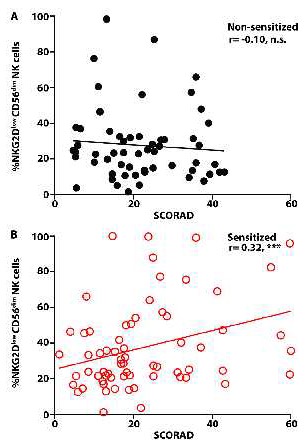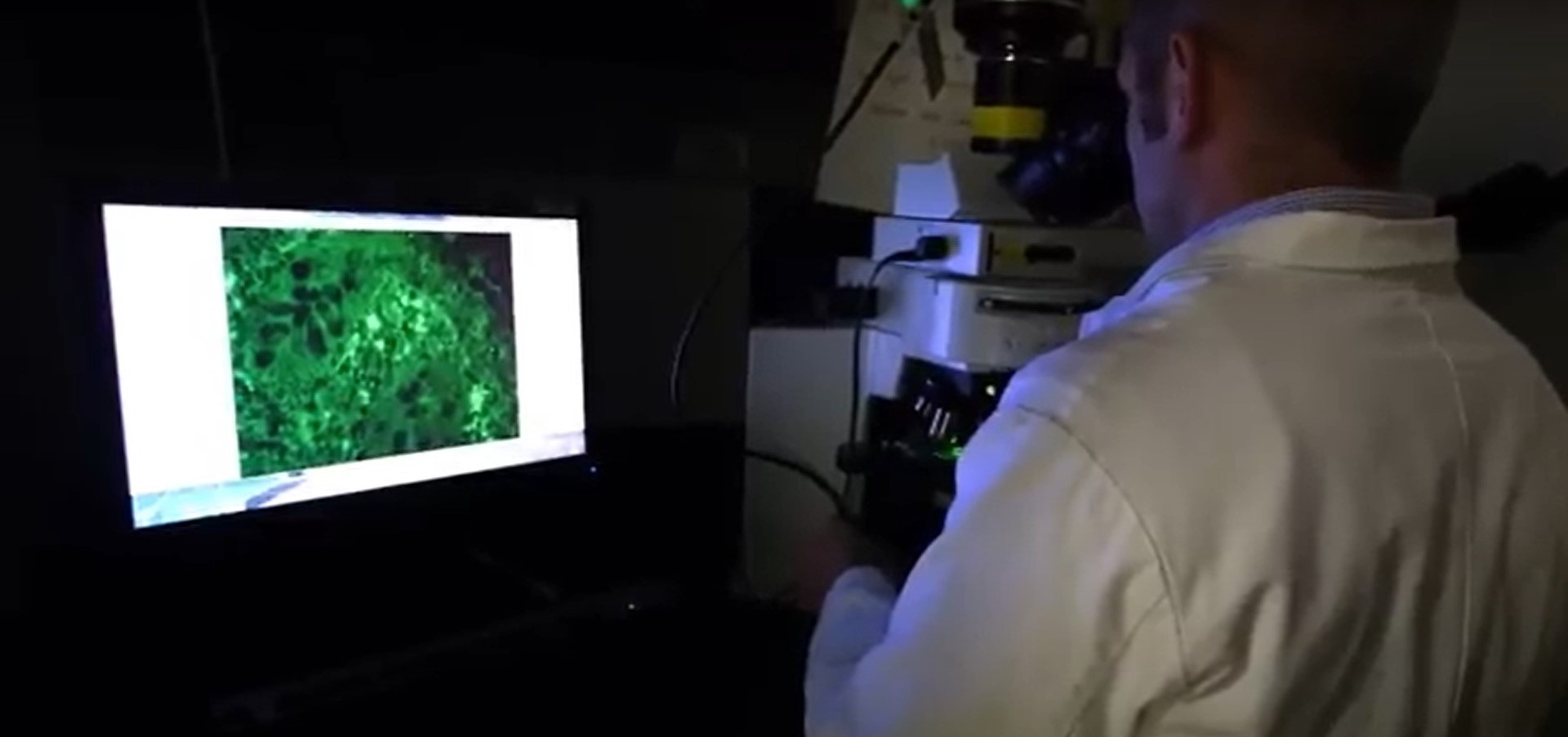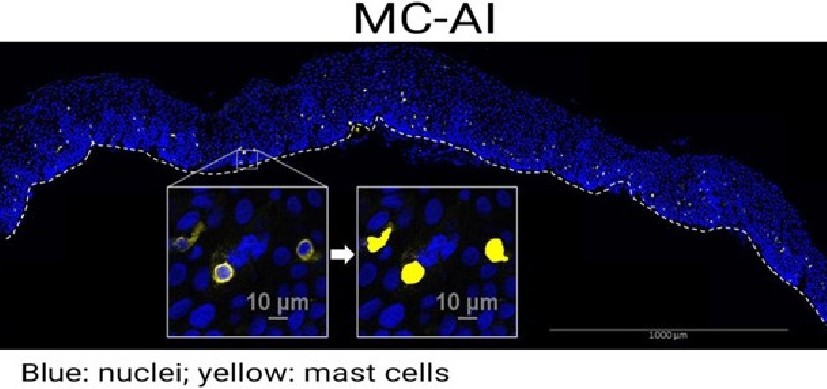Overactive Natural Killer Cells Linked to Asthma Progression
Research By: David Ohayon, PhD | Stephen Waggoner, PhD | Gurjit Khurana Hershey, MD, PhD
Post Date: February 9, 2024 | Publish Date: Feb. 9, 2024

Cincinnati Children’s team challenges a long-held theory that eczema in children is driven underactive NK cells
A study in Science Immunology, published Feb. 9, 2024, identifies an unexpected hyperactive group of natural killer (NK) cells that appears to play an important role in driving the “atopic march” from early eczema to increased risk of developing asthma later in childhood.
The study examined natural killer cell samples from 124 infants involved in an ongoing project called Mechanisms of Progression of Atopic Dermatitis to Asthma in Children (MPAACH). The new findings suggest a potential new therapeutic target for preventing asthma or reducing its severity.
“Our findings reshape the simple dogma of poor natural killer cell activity promoting eczema by demonstrating an unexpected wrinkle. An overactive population of natural killer cells in children with eczema may in fact worsen skin damage and provoke allergic sensitivity or development of asthma,” says corresponding author Gurjit “Neeru” Khurana Hershey, MD, PhD, director of the Division of Asthma Research at Cincinnati Children’s.
More details about the study appear in an article at AAAS News.
Learn more about asthma and allergy research at Cincinnati Children’s
| Original title: | Progressive accumulation of hyperinflammatory NKG2Dlow NK cells 1 in early childhood severe atopic dermatitis |
| Published in: | Science Immunology |
| Publish date: | Feb. 9, 2024 |
Research By


Our lab is principally interested in identifying regulatory mechanisms that govern the immune response to infection, and understanding how these factors contribute to pathogen elimination, tissue damage, and resolution of inflammation.

My lab combines epidemiologic, basic, translational and clinical research approaches to answer fundamental questions related to childhood asthma, atopic dermatitis, food allergy and allergic rhinitis.






